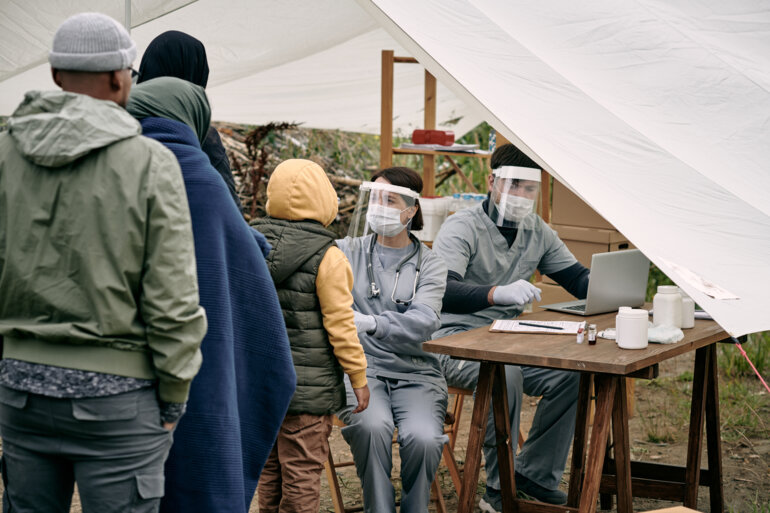
De-escalation of cancer treatments may be key to sustainability in oncology
Treating patients at reduced doses could contribute to a more efficient allocation of healthcare resources and improve access to costly treatments around the world, but implementation of de-escalation in routine practice requires reliable and cost-effective tools to safely tailor therapy to patients

Cancer treatment – how to wisely reduce its burden? A new ESMO tool to guide de-intensification
ESMO developed a classification to assess the risk-benefit ratio of treatment intensity modulation by a three-tiered approach

How to discuss cancer treatment modulation with patients?
Experience in breast cancer shows that treatment de-intensification must follow robust evidence, but also values and preferences to generate acceptance

Ukraine: what help for refugees with breast cancer?
In neighbouring countries, oncologists are seeing a growing number of female refugees with breast cancer whose treatment may have started before they left Ukraine and urgently needs to be continued for good outcomes to be achieved.

Sibylle Loibl receives the ESMO Breast Cancer 2022 Award
In her Keynote Lecture at ESMO Breast Cancer 2022, Prof. Sibylle Loibl looks at neoadjuvant therapy and the fertility and pregnancy issues facing young women with breast cancer

Cancer care in war zones: what have we learnt?
In recent conflicts, good response to the health needs of refugees with cancer in receiving countries is consequence of an analysis of local cancer centres capacity and special measures to avoid fragmented care

Fred R. Hirsch receives the Heine H. Hansen Award 2022
In his Award Keynote Lecture at the European Lung Cancer Congress 2022, Prof. Fred R. Hirsch describes how ‘the tissue is still the issue’

Lesley Seymour receives the TAT Honorary Award 2022
In her keynote lecture at the ESMO Targeted Anticancer Therapies Congress 2022, Prof. Lesley Seymour stresses the importance of sharing ideas and resources between academia and industry

Patient sex and gut microbiome play a role in modulating response to immunotherapy
Research is ongoing to investigate influencing factors of immune checkpoint inhibition, encouraging a more holistic understanding of individual characteristics to improve clinical outcomes

What do non-oncologists know about cancer care?
A survey reveals that physicians outside the field of oncology are insufficiently updated on the latest advances in cancer care, thus increasing the risk of providing misleading information and inadequate support to patients.
